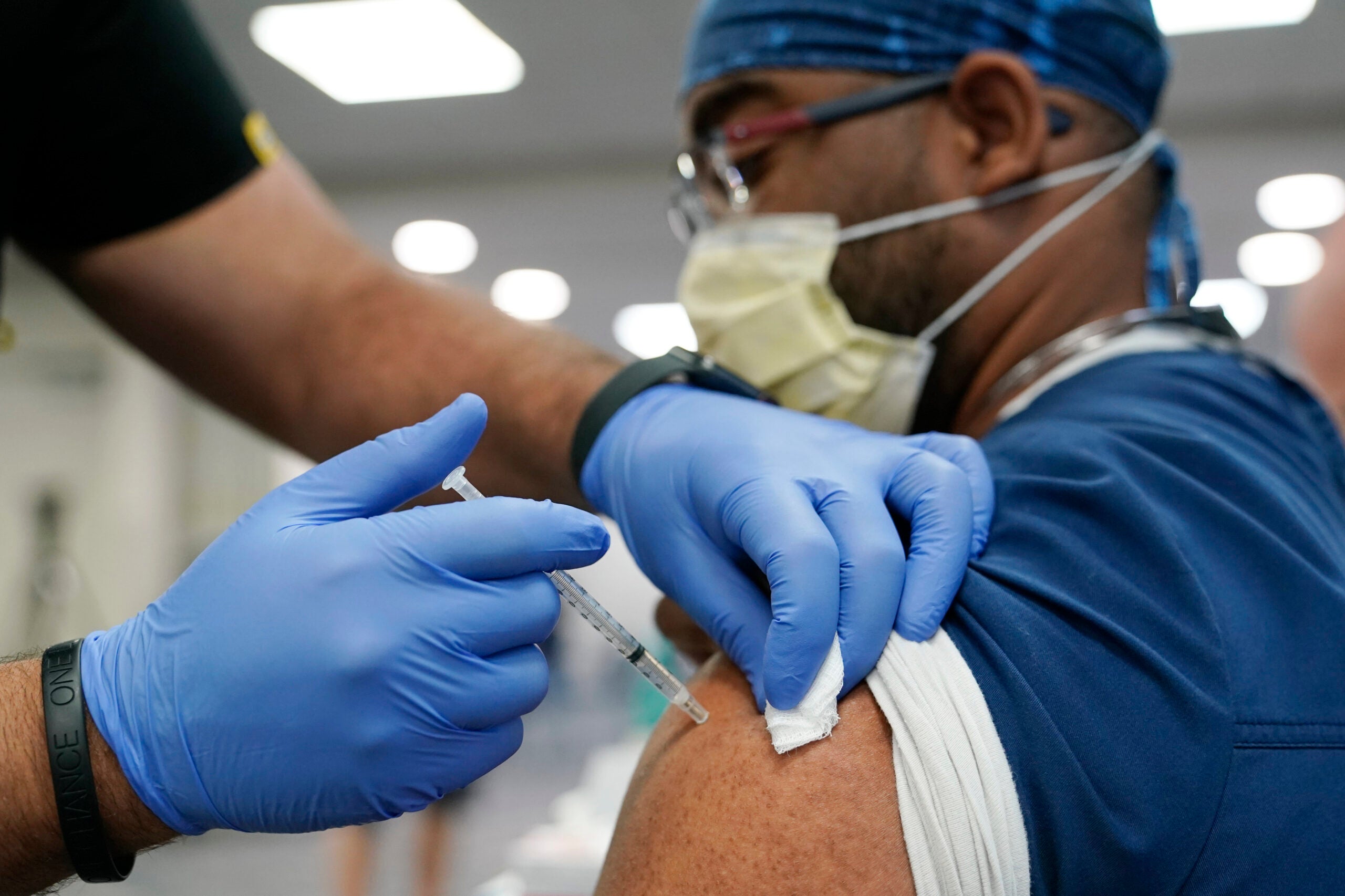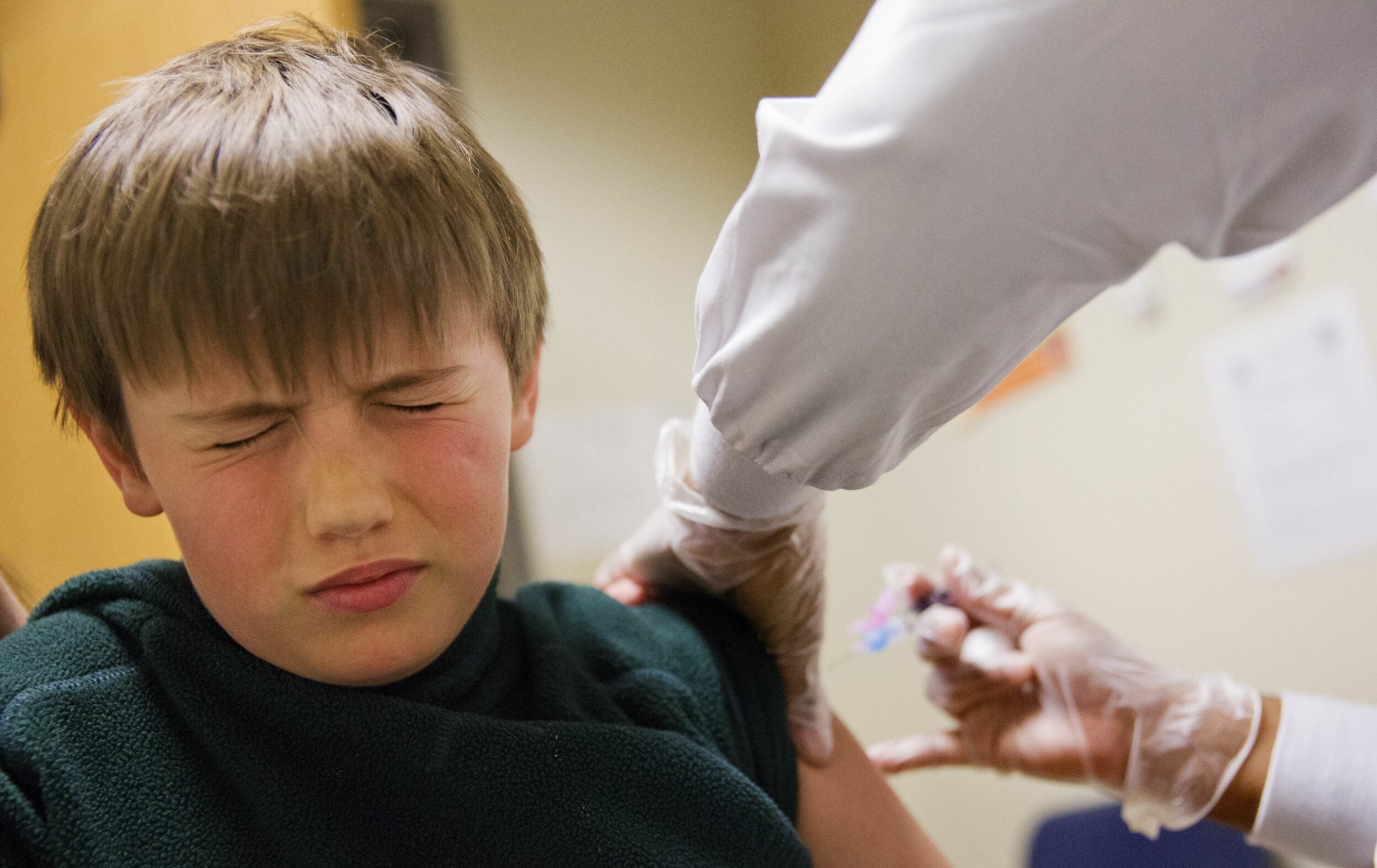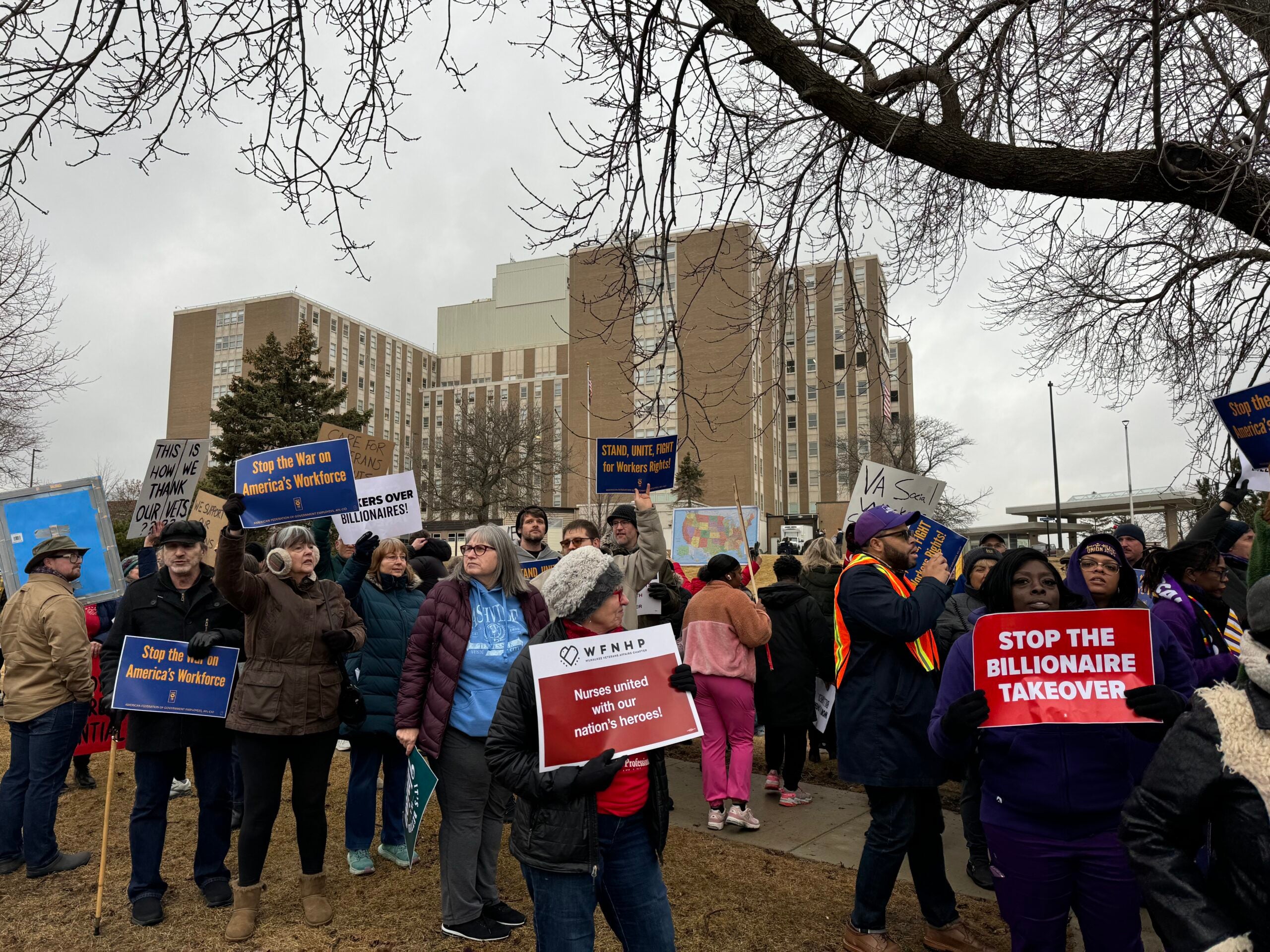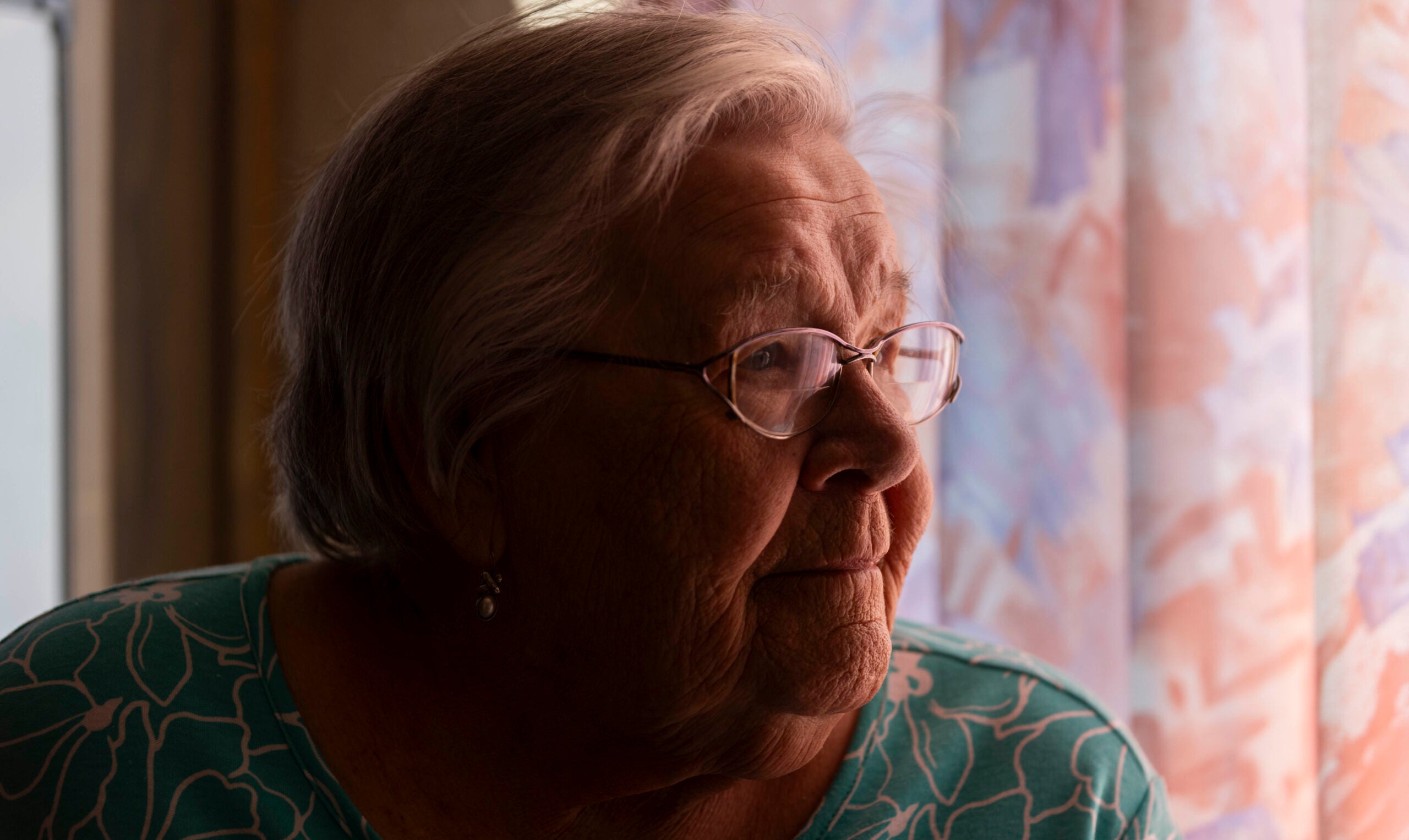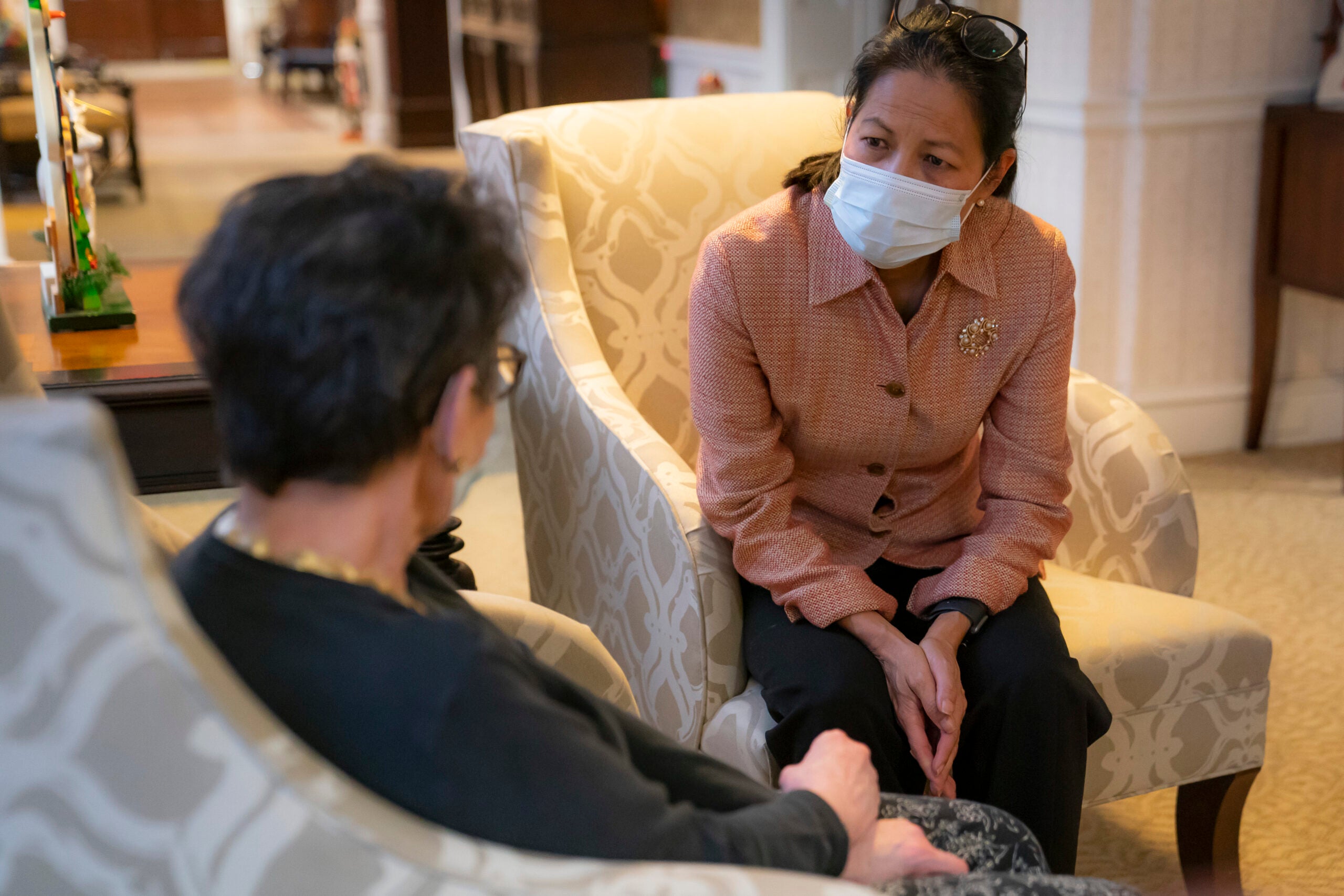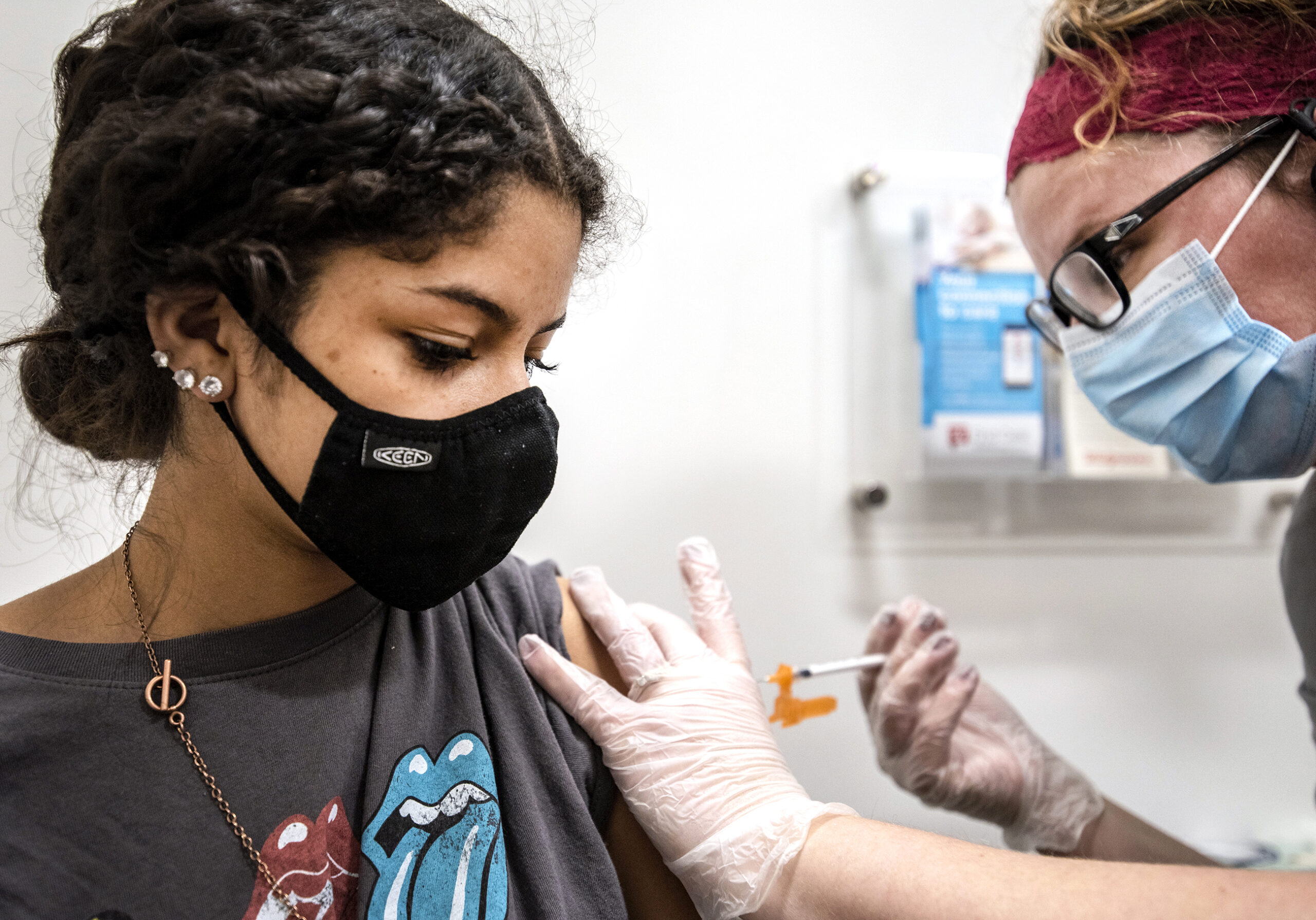Even before courts put the Biden administration’s COVID-19 vaccine mandate on hold Tuesday, more than a quarter of those working in Wisconsin nursing homes still hadn’t gotten a vaccine, federal data shows.
“That’s a long way to go” toward getting as many long-term care workers vaccinated as possible to prevent infection from spreading to vulnerable residents, said LeadingAge CEO John Sauer.
Now that the federal vaccine requirement is in legal limbo for facilities that get Medicaid and Medicare money, hospitals and nursing homes may have to abandon, at least temporarily, what some workers considered more of a stick than carrot approach.
Stay informed on the latest news
Sign up for WPR’s email newsletter.
Some healthcare providers didn’t wait for the federal government to take action and implemented their own vaccine mandate instead. The results and reception have been mixed.
At Clement Manor in Greenfield, 99 percent of staff are vaccinated, although a dozen people “moved on” because of the requirement they get a COVID-19 shot, said CEO Dennis Ferger.
“The people that live on our campuses, this is their home. And I feel the staff are kind of their guests, and we’re trying to make sure they’re safe,” Ferger said.
Other nursing homes in the state faced backlash from staff and backpedaled on a mandate.
Rock Haven in Janesville lifted the requirement after Rock County Board members voted to discontinue the mandate in May amid legal challenges, according to the Milwaukee Journal Sentinel.
Even before COVID-19, nursing homes had staff shortages which facilities worried could get worse if workers objected to a vaccine requirement.
“Anything we do that can exacerbate that means there will be people who do not receive the care they need,” said Sauer.
Because workers can be so hard to hire and keep, he said many nursing home providers felt relief when a federal judge in Louisiana temporarily blocked a COVID-19 vaccine mandate for health care workers.
The staff shortages at some nursing homes are so acute they aren’t accepting transfers from hospitals, many of which are full with severely ill COVID-19 patients along with other medical conditions that typically increase hospital demand during the holidays, like heart problems and traffic accidents.
“There’s no doubt that has created some of our issues” when patients cannot be transferred to nursing homes, said Dr. Ashok Rai, president and CEO of Prevea Health in Green Bay during a media briefing Thursday with state health officials.
In a report to the Wisconsin Department of Health Services prepared before the court halted the federal vaccine mandate, LeadingAge looked at national labor and health data to show how staffing is limiting or slowing care at hospitals, doctors’ offices and nursing homes.
Nationally, hospitals are currently staffed at 98 percent of January 2020 levels while long-term care is only staffed at 88 percent of pre-pandemic levels, according to the report.
In Wisconsin, nursing home occupancy was rising over the course of 2021 as more became known about how to control the virus and there was an influx of federal funding. But the report said there was a “large jump” of nursing home staff shortages in August that hasn’t stabilized.
Wisconsin Public Radio, © Copyright 2025, Board of Regents of the University of Wisconsin System and Wisconsin Educational Communications Board.

